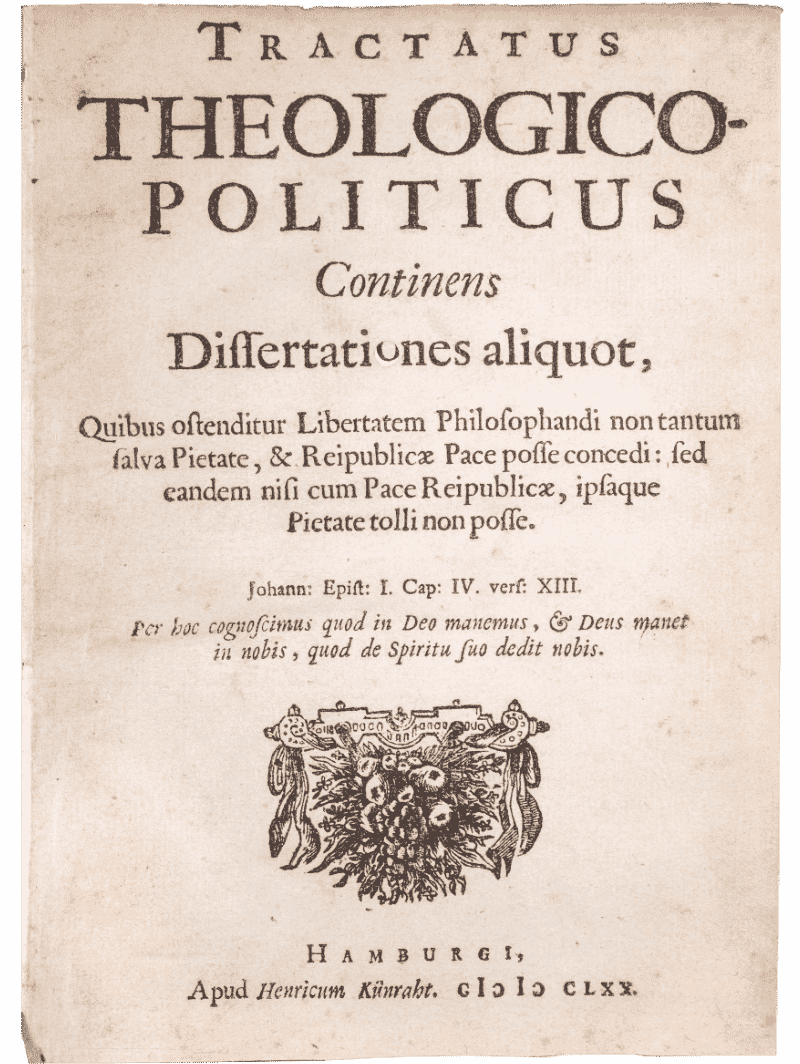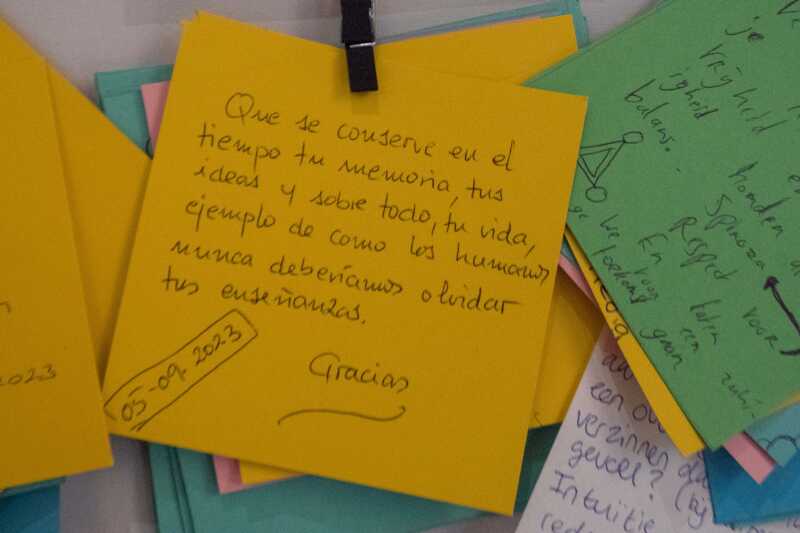Theological-Political Treatise
In 1670, Spinoza published his Theological-Political Treatise (often abbreviated as TTP, after the Latin original). This daring book broke with the traditional view of the Bible and turned power relationships upside down. The work has had a great influence on our Western way of thinking. It deals with the role of the state, the relationship between church and state, democracy, freedom of speech and the use of Reason. Contemporaries stated that this book was forged in hell.


Freedom of Thought, Belief and Speech
The content of Spinoza’s Theological-Political Treatise has had a great influence on our conception of the state and on society. According to Spinoza, authorities do not exercise their power in the name of God, but are in the service of the people over whom they govern. According to Spinoza, secular authority is also above ecclesiastical authority. Spinoza believes that theology (and therefore also the church, synagogue or mosque) should not interfere with state affairs. A bold claim in the 17th century, when religion and politics were still closely intertwined. It is not without reason that the book was said by some to have been ‘forged in hell’.
In the Theological-Political Treatise, Spinoza advocates the use of Reason (our intellect), supports the ideas of democracy and promotes the complete freedom of thought, belief and the expression of one’s own views. According to the philosopher, these are prerequisites for harmony and peace. These were exceptionally modern ideas for his time.
Still relevant
The exhibition gives both proponents and opponents of Spinoza’s ideas ‘the opportunity to speak’. The exhibition challenges us to examine Spinoza’s ideas in the light of current social issues.
Previous temporary exhibitions